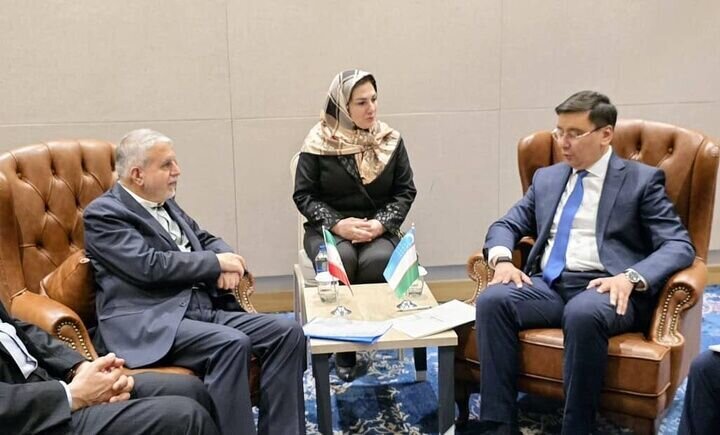Iran, Uzbekistan discuss extended co-op in tourism sector

TEHRAN - Senior officials from Iran and Uzbekistan have held talks aimed at boosting bilateral cooperation in the tourism sector, emphasizing their shared civilizational and cultural heritage as a foundation for closer collaboration.
Iran’s Minister of Cultural Heritage, Tourism, and Handicrafts, Seyyed Reza Salehi-Amiri, met with Umid Shadiev, Chairman of the Tourism Committee under Uzbekistan’s Ministry of Ecology, Environmental Protection, and Climate Change, Mehr reported on Saturday.
The officials discussed plans for joint investment, cultural events, and enhanced promotional efforts to increase tourism exchanges.
Salehi-Amiri highlighted the deep historical ties between the two nations, stating that relations between the two nations go beyond traditional diplomacy and should be redefined in the context of their shared civilizational values. He noted that despite millions of Iranians traveling abroad each year, Uzbekistan remains an underexplored destination—an issue he attributed to mutual neglect in promoting tangible and intangible heritage.
Referring to his previous visits to Samarkand and Bukhara, the Iranian minister spoke of the cultural affinity Iranians feel toward Uzbekistan’s architecture and visual culture. He stressed the need to foster cultural tourism as a means of reviving shared historical memory.
Salehi-Amiri proposed three key strategies for strengthening tourism ties: signing a comprehensive memorandum of understanding—drafted and already submitted to the Uzbek side; promoting tourism through media, tour operators, and cultural influencers; and organizing joint events and exhibitions in historic cities such as Tehran, Samarkand, Bukhara, Isfahan, and Shiraz.
Elsewhere in his remarks, the Iranian minister expressed Iran’s readiness to convene a joint investment forum in the tourism sector. He emphasized that Iran has already prepared the necessary infrastructure to double its tourism capacity and called for elevating cooperation to a strategic level.
Umid Shadiev, for his part, welcomed Iran’s cooperative approach and expressed support for a broad tourism agreement, calling it the beginning of a new chapter in bilateral cultural relations. Reflecting on his own visit to Iran, he remarked that he felt a sense of rediscovering part of his own [cultural] identity, pointing to the deep and authentic cultural links between the two nations.
Shadiev praised the Tehran International Tourism Exhibition as an exceptional event in terms of professionalism and public engagement. Though unable to attend this year due to scheduling conflicts, he affirmed Uzbekistan’s commitment to participating actively in future editions.
He also proposed scientific collaboration between Uzbekistan’s Silk Road University and Iran’s Research Institute of Cultural Heritage and Tourism, suggesting joint work in restoration, archaeology, and specialized training.
Iran seeks to reap a bonanza from its numerous tourist spots, such as centuries-old bazaars, museums, mosques, gardens, bridges, bathhouses, madrasas, mausoleums, churches, tomb-towers, and mansions, of which 28 are inscribed on the UNESCO World Heritage list.
AM
Leave a Comment